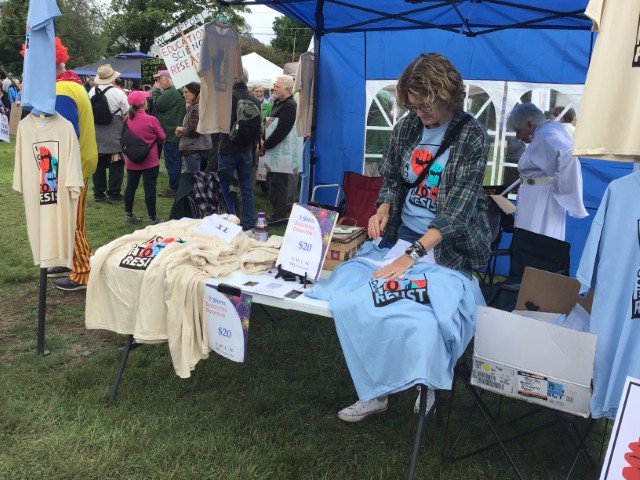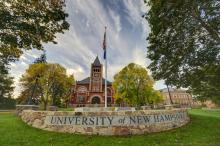Members of Monadnock Action are organizing demonstrations against SAU29's compliance with the anti-DEI push from the federal Department of Education.
Background
April: vague letter of certification from federal Dept. of Ed with anti-DEI push
SAU29 superintendent signed letter, instead of joining others in pushing back,
Public Education is DEI & A!!!
Free Appropriate Public Education, 504, ADA, Civil Rights, EEO Act
Teachers aren’t sure what is okay and not okay to teach
Our Ask
Upcoming Actions
Peaceful Demonstration, Tuesday, May 20th, 7:45-9:00, Maple Avenue @ entrance to SAU driveway, positive messages on signs (pro DEI, pro-inclusion, pro-student, pro-teacher); parking: Jonathan Daniels or nearby side streets
Attend SAU29 School Board Meeting, Tuesday, Ma Iy 20th, 6:30pm, Jonathan Daniels PD Center–C3 entrance, 227 Maple Avenue. Speak on the topic and/or show support for others who esdd Dec are speaking.
Different school district? Please consider similar actions In your district
More background
In April, the Trump administration’s federal Department of Education sent an anti-Diversity, Equity, and Inclusion (DEI)* letter to all states’ Departments of Education, with the demand that all school districts sign as certification that they are not utilizing any DEI practices in their districts. The letter made reference to following civil rights and Equal Educational Opportunities Act laws, yet the language and intent of the letter was to obscure the actual meaning of DEI. The threat if a school district decided not to sign the letter within 10 days of receipt? Lose federal funding that helps support special education and resources for under-served populations.
This letter is a test for early compliance. It is a clear example of administrative overreach with highly questionable legality. As has been the case with so many other “Dear Colleague” letters, its language, meaning, and intention is vague and unclear. As such, several New Hampshire school districts opted not to sign, but rather are fighting back by joining a lawsuit with the ACLU and NEA (National Education Association).
As directed by the NH Department of Education, led by Frank Edelblut, Superintendent Malay of SAU29 signed this letter. In response to questions about this, Malay’s office explains that they did not want to risk losing that federal funding and that SAU29 follows the relevant laws relating to the Civil Rights Act, 504 of the ADA, and EEO. The problem, however, is that the Trump administration is working to undermine how these laws have been applied and redefine what they mean, in regards to equity and accessibility for underserved populations and those with unique needs.
The rhetoric from the current federal administration is clearly designed to have targets on many vulnerable segments of our population, such as immigrants, LGBTQI+, disability groups, and BIPOC.** Families with children and youth who are part of these populations have concerns, worries, and even fears about their children’s safety, well-being, and access to supportive resources. While some of these concerns have always existed, in the current climate, there are new and heightened concerns. Other concerns include teachers being unclear as to what they can teach or not teach and parental concerns about how this impacts information and dialogue their children and youth will have access to in school.
Now, with school districts signing this anti-DEI letter, many are left to wonder what our schools will do to protect our children’s privacy and safety when further administrative overreach is attempted. Right now, we still have courts that can try to slow and stop some of the overreach. However, there are efforts to undermine courts’ authority. What might it look like when this current government seeks to identify new Americans in our schools, children and youth who may be what Trump referred to as *unproductive,* LGBTQI+ identifying, and others they do not like? One can imagine that when deepening overreach is attempted, we may not have functioning courts. Now is the time to defend the principles of DEI & Accessibility and be clear about what our public schools mean for our society.
Public school is diversity, equity, inclusion, and accessibility. This is the charge to our public schools: provide a free appropriate public education to all students. This is what makes a strong future possible for all of us!
Monadnock Action, a local Indivisible group, took up this matter as an important local action item. We are working to raise awareness about this issue, through peaceful demonstrations on Maple Avenue with positive messaging for SAU29 to “Stand Up for DEI” and protect our students. Our first demonstration, held on Friday, May 16th with small, but mighty, with a positive reception from the community. Our next peaceful demonstration will be Tuesday, May 20th morning from 7:45-9:00. We are encouraging members of the public to attend the school board meeting on Tuesday, May 20th at 6:30pm to participate in public comment on this issue and show support to folks who are speaking. Our ask is that SAU29 not only stand up for DEI, but also that the superintendent rescind his signature on the anti-DEI certification and join in support, along with Dover, Hanover, Oyster River, Portsmouth, and Somersworth, Norwich, VT, ACLU and NEA, to fight this letter.
* When Trump attacks DEI, he generally includes accessibility and has taken steps to obscure consistent federal guidelines regarding accessibility.
**LGBTQI+: lesbian, gay, bisexual, trans, queer, intersexed, asexual, 2-spirit; BIPOC: Black, Indigenous, and People of Color
Helpful links:
https://www.wmur.com/article/federal-judge-nh-blocks-directive-to-cut-dei-funding/64584714
https://www.aclu-nh.org/en/cases/nea-and-nea-nh-v-us-department-education
https://www.vermontpublic.org/2025-04-14/nh-schools-challenge-trump-dei-ban-its-not-left-versus-right-its-right-versus-wrong
https://www.edweek.org/policy-politics/see-which-states-are-telling-trump-their-schools-dont-use-illegal-dei/2025/04



















